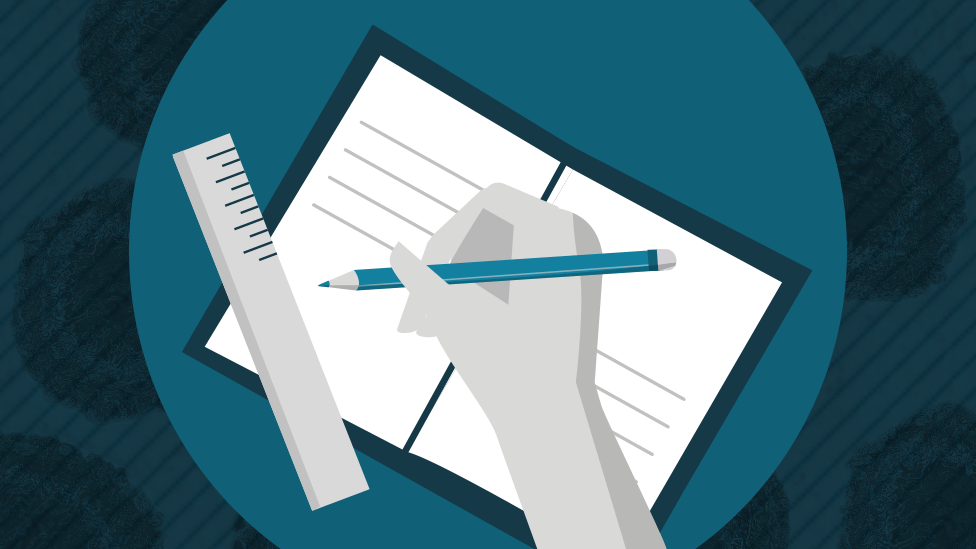Covid: Politicians reluctant to hint at lockdown end date
- Published
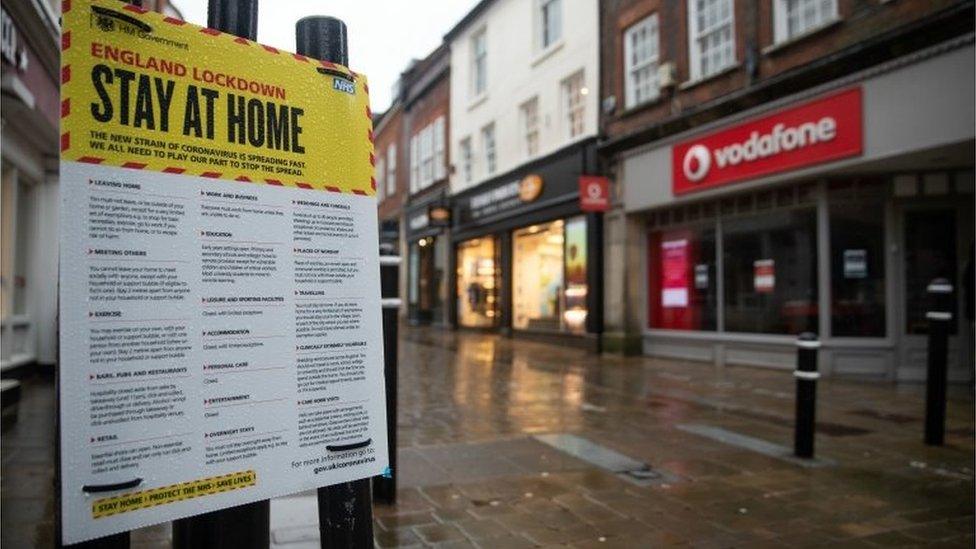
When? That is what so many of us want to know. When will this start to be over? When will the blanket lockdown lift? When will restrictions start to unroll?
It's a question right now that politicians just won't give the answer to.
But let's consider what the people who will make be making those decisions have been saying today.
The prime minister said it's just too early to say if it will be lifted by spring. The home secretary said it was far too early even to contemplate removing restrictions or booking a summer holiday.
The education secretary said he hopes schools will all be back in England by Easter, but couldn't give that guarantee.
In Northern Ireland, Arlene Foster and Michelle O'Neill extended the lockdown until at least 5 March, giving clarity of a sort.
In Scotland, restrictions are already in place until the middle of February, and in Wales there is no sign of any easing at all.
You can only conclude that the mood among the politicians who have the unenviable task of making the calls in the months to come is one of real concern about what is happening.
Certainly there have been signs that the pace of the disease may be slowing.
The progress of the vaccine, a patchwork perhaps, provides hope of a way out.
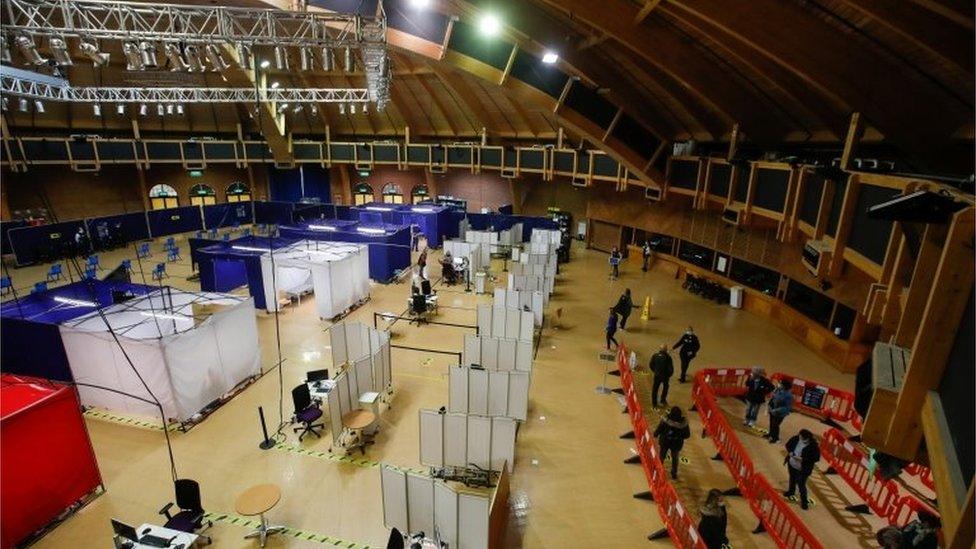
A vaccination centre in Bournemouth
But as one senior official said, "there is light at the end of the tunnel, but no one knows how long the dark tunnel is going to be."
Because the disease is still rampant, the numbers of people in hospital far greater than anything first time round, the risk is still extremely high.
There is also a sense in government that when the restrictions are finally rolled back this time, that really has to be the last lockdown.
Perhaps some believe better to stay longer under lockdown than rush out as soon as it might be safe.
The government is conscious of the risk of repeated changes of policy, memories of the November lockdown that didn't do enough, then the last minute cancellation of the chance to celebrate Christmas in the way ministers had promised.
Boris Johnson promising back in March that we could "turn the tide" in 12 weeks now feels like it was a fantasy promise from another universe.
And each doubt about how quickly the doors will unlock cranks up pressure on the government to preserve the measures designed to prop things up during the crisis.
It is a long list, a very, very long list, many more big, often expensive measures, than just the extra universal credit payment that has caught so much political attention this week.
The eviction ban in England will end on 21 February.
The holiday on stamp duty is also due to expire at the end of March, so are the loan schemes that have got cash out to businesses - the Bounce Back and Coronavirus Business Interruption Loans.
The business rate holiday in England is in theory coming to an end too.
Then the vast furlough scheme and support for the unemployed are both due to finish up at the end of April.
Even planning permissions that were extended, because projects couldn't get going, are due to run out then.
'Politically impossible'
It's not just the opposition parties, or business and industry groups, that are starting to warn about the risks of removing any of these measures before the country is starting to take some steps back to normal.
There are nerves among Tories too.
Even though the governing party, and its chancellor's instincts are to pare back the historically high levels of spending as soon as possible, there is a growing sense, as expressed by one senior Conservative today that it may prove "politically impossible", to start taking support away before restrictions are removed and most people are back at work, saying, "you cannot do it before then, and what's more, the government knows it."
And with the situation rolling on, and on, there are hints of conversations about more significant actions that might be needed, to give the country time to repair.
Hugely expensive sticking plasters were created at the beginning of the pandemic to try to prevent the worst from happening.
But after a while, sticking plasters lose their glue. And the hurt that's hidden underneath might need more dramatic treatment.
But ministers' decisions are dependent on how the disease moves in the next few weeks, which in large part is dependent on how we all respond too.
While the picture now is horribly serious, with a substantial fall in cases and even better progress in the vaccine, it is of course possible - and what politicians dearly desire - that the situation takes a sharp turn for the better.
And while ministers are confident that the public is broadly behind the lockdown right now, Boris Johnson can't completely ignore the restlessness among some of his backbenchers for a sketch at least of the way out.
But you can't listen to that list of warnings from politicians today and conclude anything other than lifting lockdown is someway off.
It's hope, not necessarily expectation that progress will have started by spring.
And as each day passes, the pressure will grow on the government to extend the measures it introduced to cope with an emergency, for as long as the emergency lasts.
- Published21 January 2021
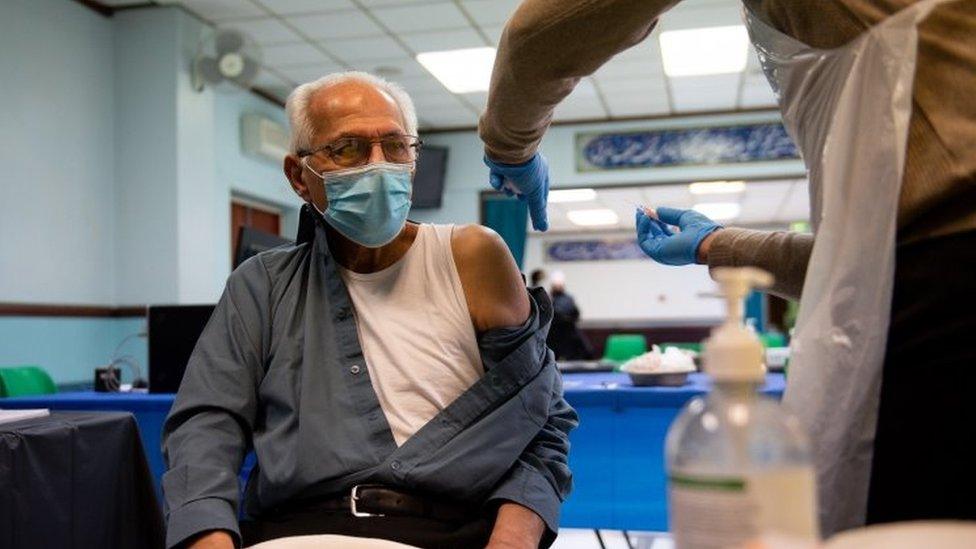
- Published21 January 2021
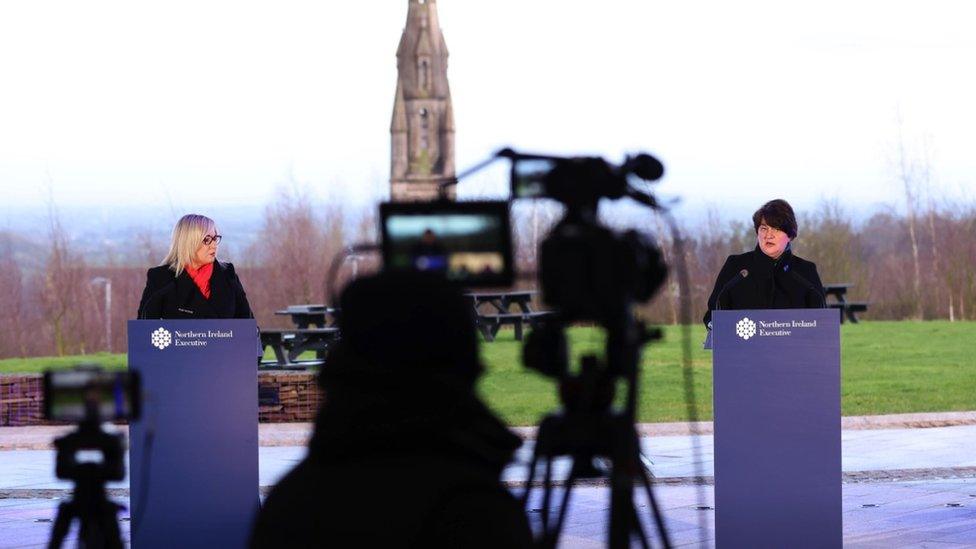
- Published21 January 2021

- Published23 February 2022
